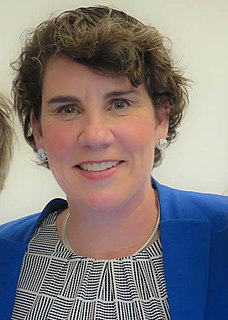A Quote by Piyush Goyal
Our pollution out of carbon emissions is still very, very low compared to the world.
Related Quotes
I think the Caribbean countries face rising oceans and they face increase in the severity of hurricanes. This is something that is very, very scary to all of us. The island states in the world represent - I remember this number - one-half of 1 percent of the carbon emissions in the world. And they will - some of them will disappear.
Today, about 40 percent of America's carbon pollution comes from our power plants. There are no federal limits to the amount those plants can pump into the air. None. We limit the amount of toxic chemicals like mercury, and sulfur, and arsenic in our air and water, but power plants can dump as much carbon pollution into our atmosphere as they want. It's not smart, it's not right, it's not safe, and I determined it needs to stop.
But carbon 13 [the carbon from corn] doesn't lie, and researchers who have compared the isotopes in the flesh or hair of Americans to those in the same tissues of Mexicans report that it is now we in the North who are the true people of corn.... Compared to us, Mexicans today consume a far more varied carbon diet: the animals they eat still eat grass (until recently, Mexicans regarded feeding corn to livestock as a sacrilege); much of their protein comes from legumes; and they still sweeten their beverages with cane sugar. So that's us: processed corn, walking.
Thing that we wanted to do was redefine what a green job was, what a climate job was. We said: "Wait a minute. There's all these people out there who are doing low-carbon work." It's not just guys in hard hats putting up solar panels. Teaching is low carbon. Caring for the sick is low carbon. Daycare is a green workplace. Overwhelmingly, this is work that is done by women, overwhelmingly women of color, on the frontlines of austerity clawbacks.

































